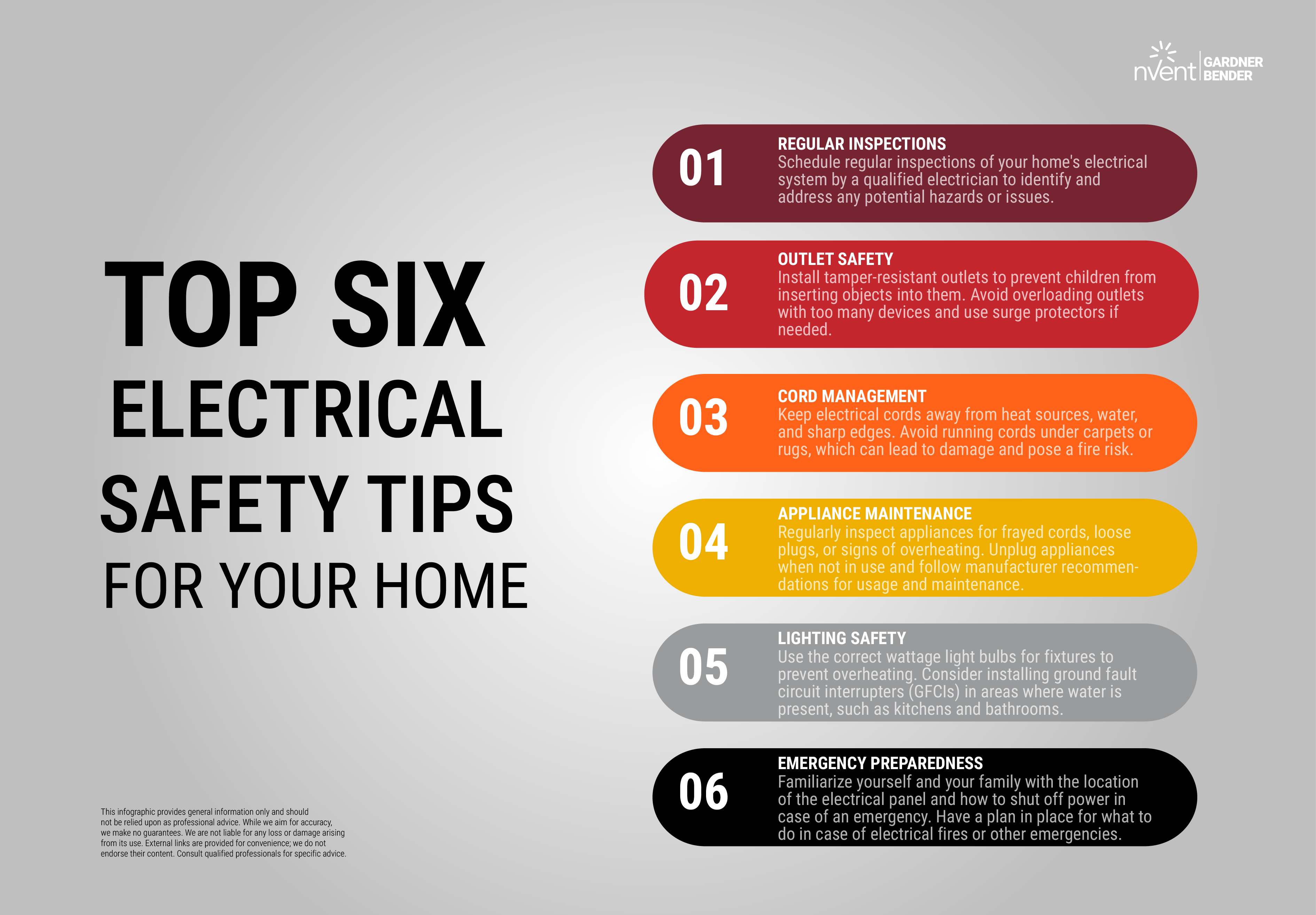
6 Electrical Safety Tips For Your Home
Ensuring the safety of your home's electrical system is crucial for protecting your family and property. From preventing shocks to avoiding fires and equipment damage, it's essential to implement effective safety measures. In this article, we'll cover key tips to help you maintain a secure and hazard-free home environment.
Regular Inspections:
Schedule regular inspections of your home's electrical system by a qualified electrician to identify and address any potential hazards or issues.
Outlet Safety:
Install tamper-resistant outlets to prevent children from inserting objects into them. Avoid overloading outlets with too many devices and use surge protectors if needed.
Cord Management:
Keep electrical cords away from heat sources, water, and sharp edges. Avoid running cords under carpets or rugs, which can lead to damage and pose a fire risk.
Appliance Maintenance:
Regularly inspect appliances for frayed cords, loose plugs, or signs of overheating. Unplug appliances when not in use and follow manufacturer recommendations for usage and maintenance.
Lighting Safety:
Use the correct wattage light bulbs for fixtures to prevent overheating. Consider installing ground fault circuit interrupters (GFCIs) in areas where water is present, such as kitchens and bathrooms.
Emergency Preparedness:
Familiarize yourself and your family with the location of the electrical panel and how to shut off power in case of an emergency. Have a plan in place for what to do in case of electrical fires or other emergencies.
In conclusion, prioritizing electrical safety in your home is an investment in the well-being of your family and the protection of your property. By following the tips in this article and remaining vigilant in identifying and addressing potential hazards, you can create a safe and secure environment for everyone. Remember, electrical safety is a shared responsibility, and together, we can mitigate risks and enjoy peace of mind knowing that our homes are protected.
This article provides general information only and should not be relied upon as professional advice. While we aim for accuracy, we make no guarantees. We are not liable for any loss or damage arising from its use. Consult qualified professionals for specific advice.











